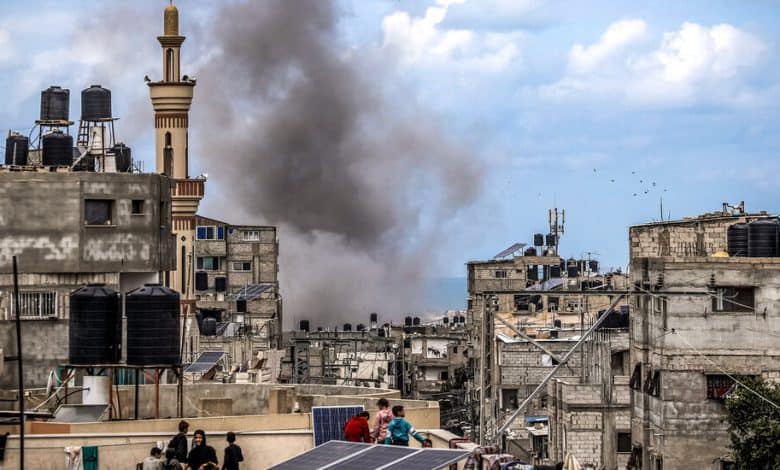Netanyahu Cancels U.S.-Israel Meetings on Rafah, to Protest U.N. Resolution

For the increasingly tense U.S.-Israel relationship, the fallout from passage of the U.N. cease-fire resolution was immediate, as Prime Minister Benjamin Netanyahu said Monday that he would not send a planned high-level delegation to Washington for meetings with U.S. officials.
President Biden had requested the meetings to discuss alternatives to a planned Israeli offensive into Rafah, the southern Gaza city where more than a million people have sought refuge, an offensive that American officials have said would create an humanitarian disaster.
The United States had vetoed three previous U.N. Security Council resolutions calling for an end to the war in Gaza between Israel and Hamas, agreeing with Israel’s argument that it would leave Hamas intact and in control of the enclave after it carried out the Oct. 7 assault on Israel.
But on Monday, when the Security Council took up a less strongly worded resolution, calling for a cease-fire for the holy month of Ramadan, the U.S. representative abstained, allowing the measure to pass.
Mr. Netanyahu, in a statement, denounced the abstention as “a retreat from the consistent American position since the beginning of the war,” one which “gives Hamas hope that international pressure will enable them to achieve a cease-fire without freeing the hostages.”
In response, he said, the Israeli delegation that was to discuss Rafah would not go to Washington. The practical impact of his decision may be limited — Mr. Netanyahu has said repeatedly that although he would hear out the White House position, the offensive would proceed — but it is still a sharp, public rebuke of Israel’s closest and most powerful ally.
